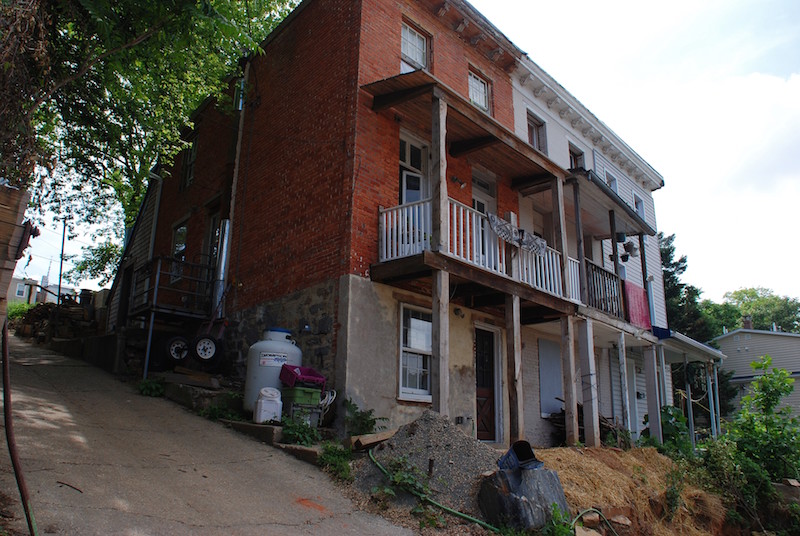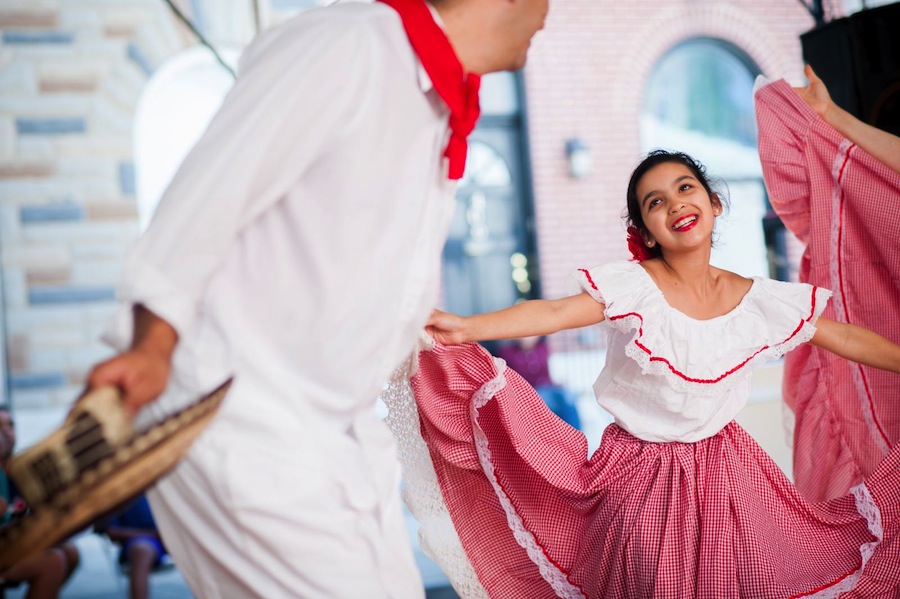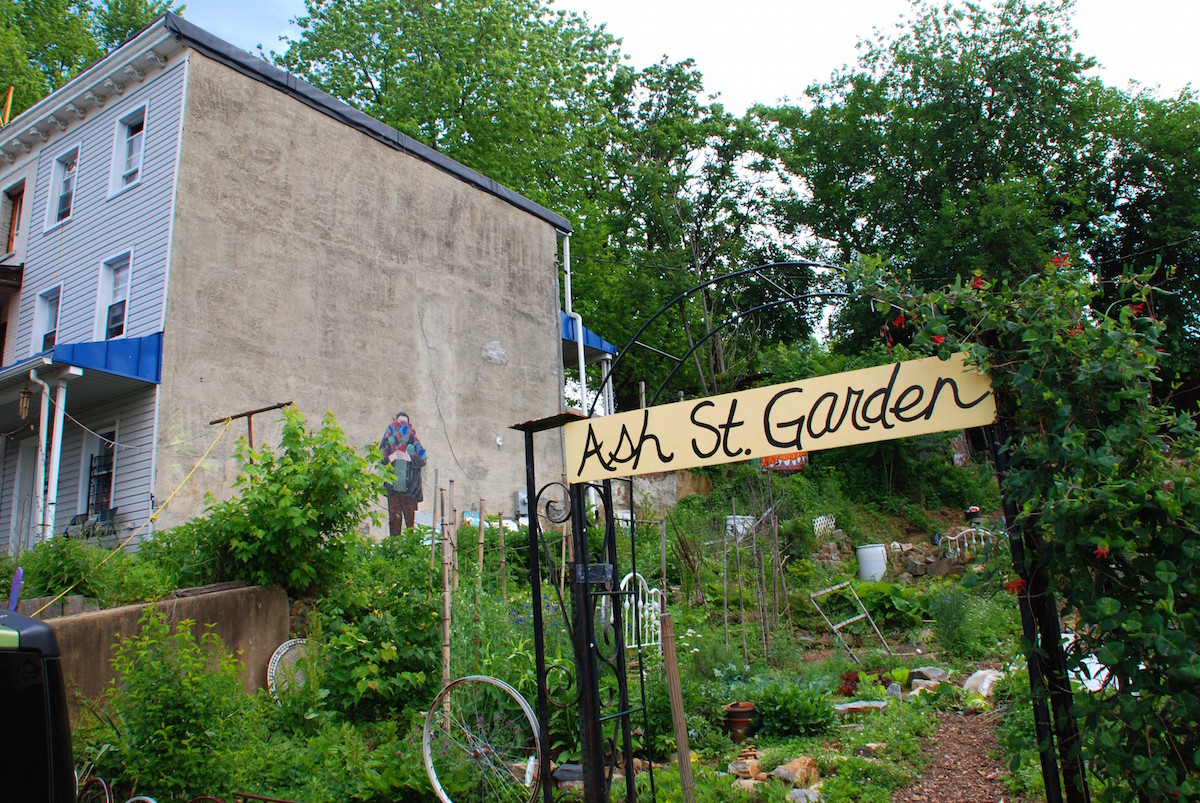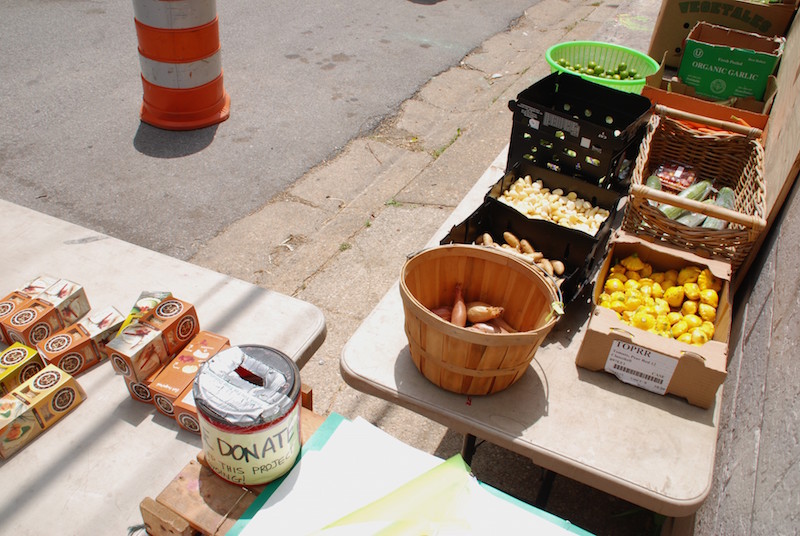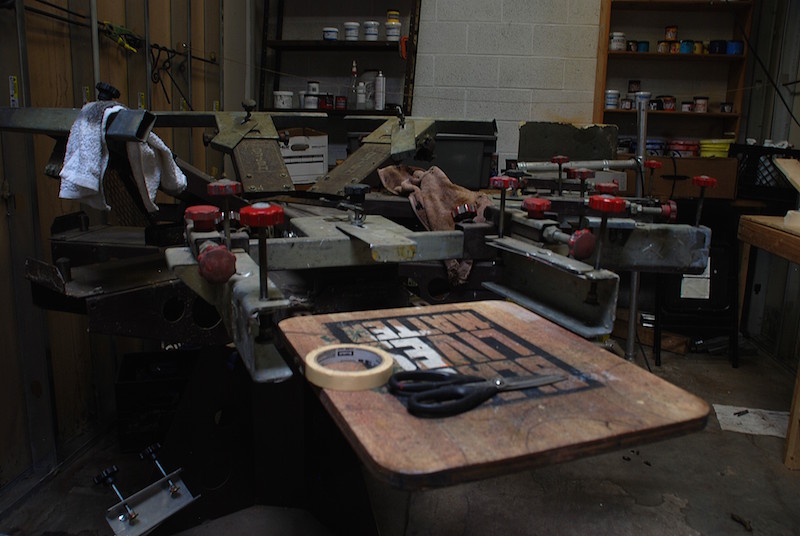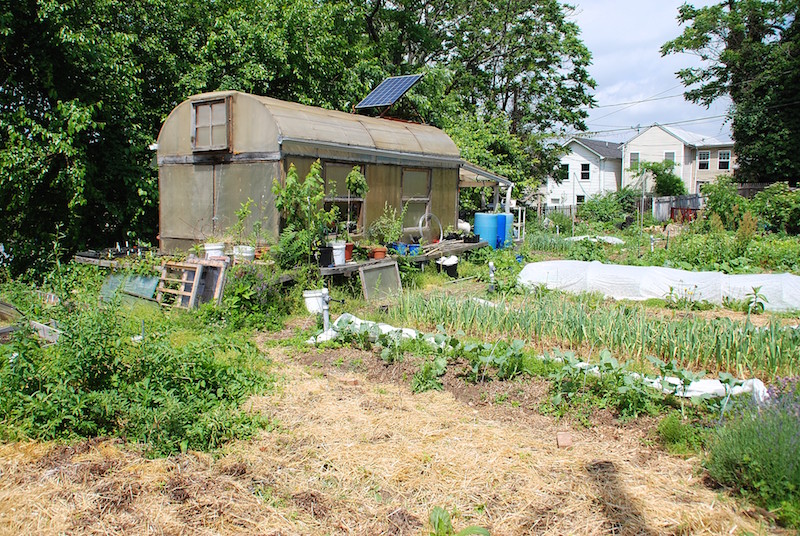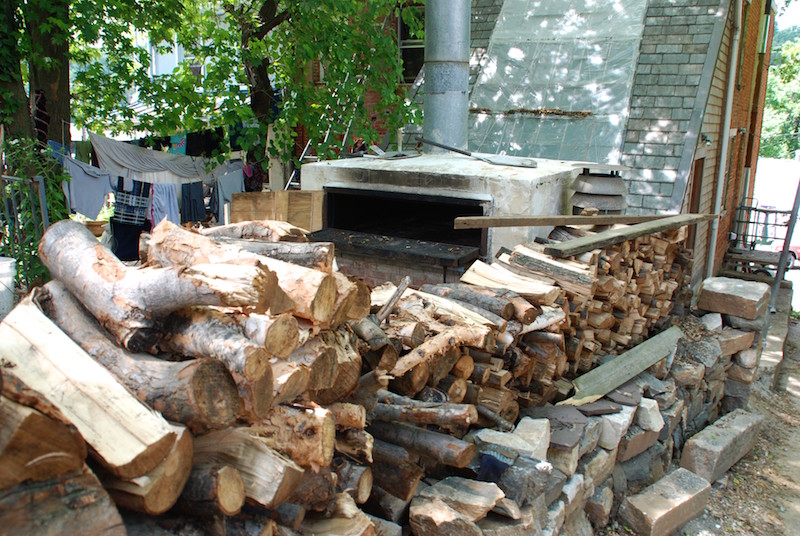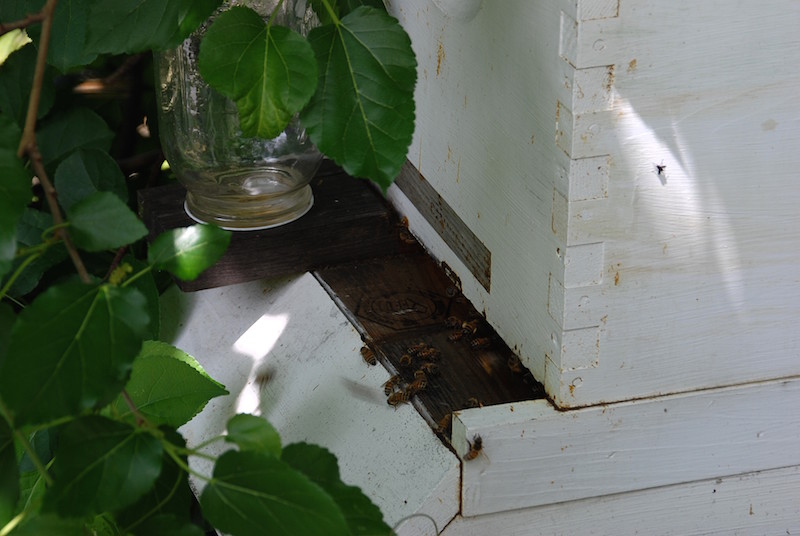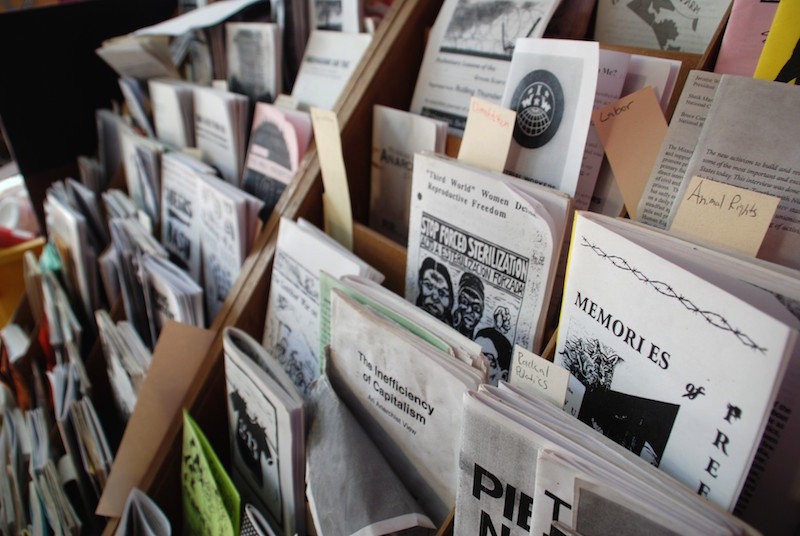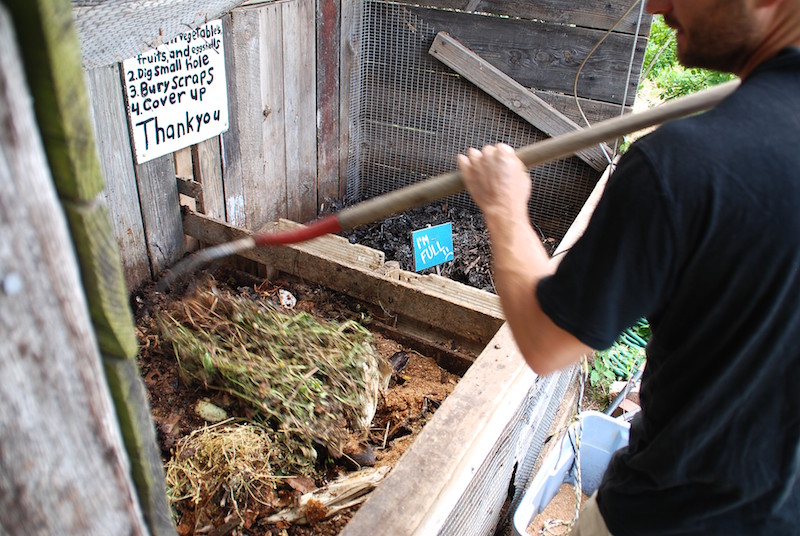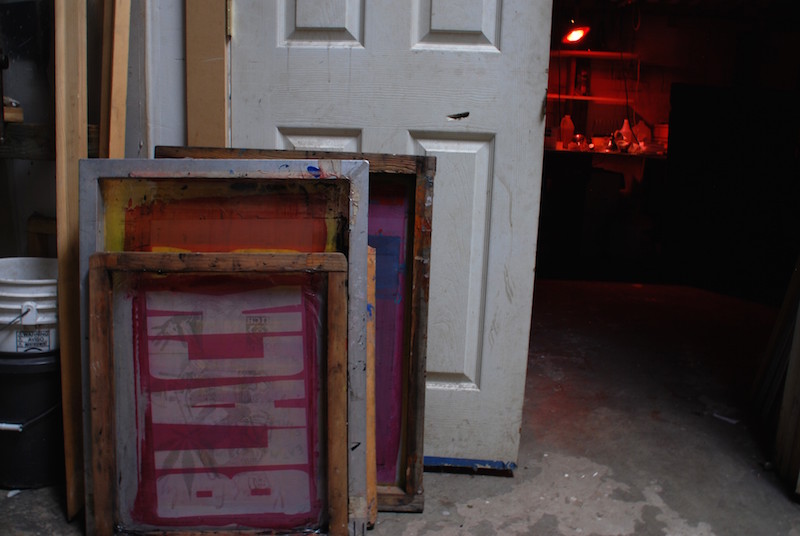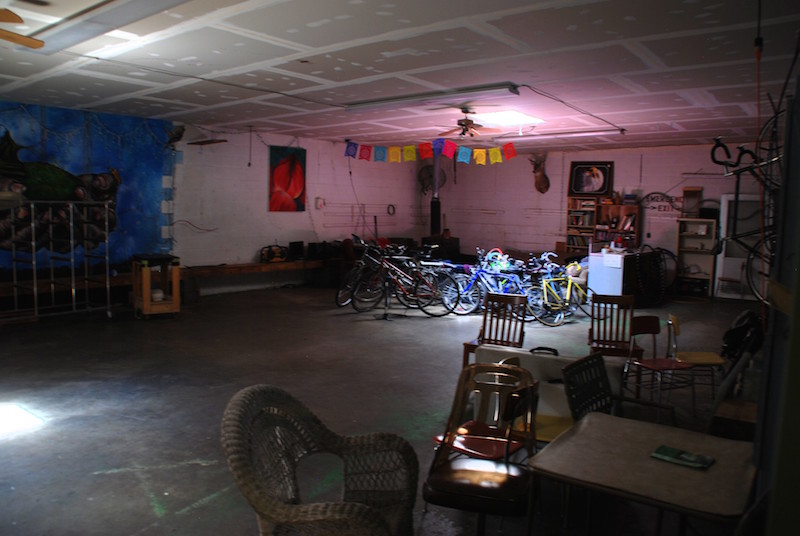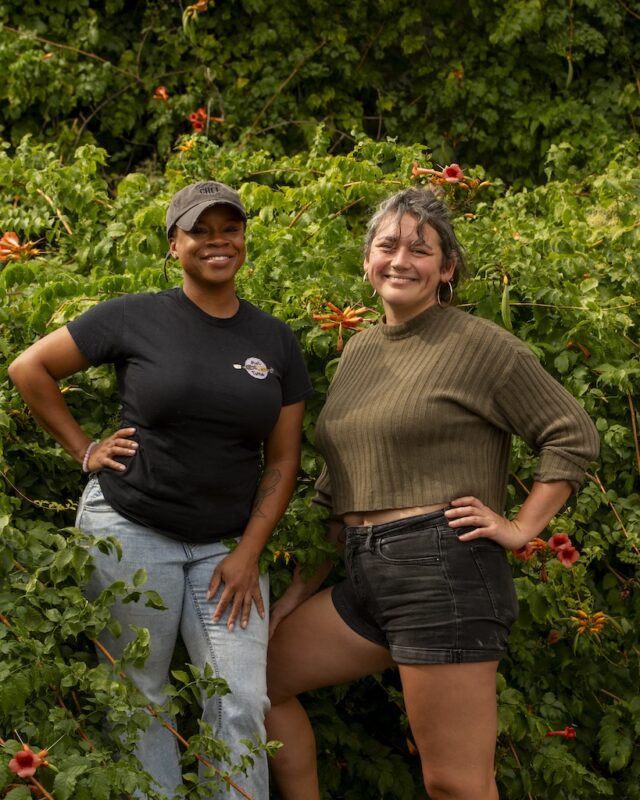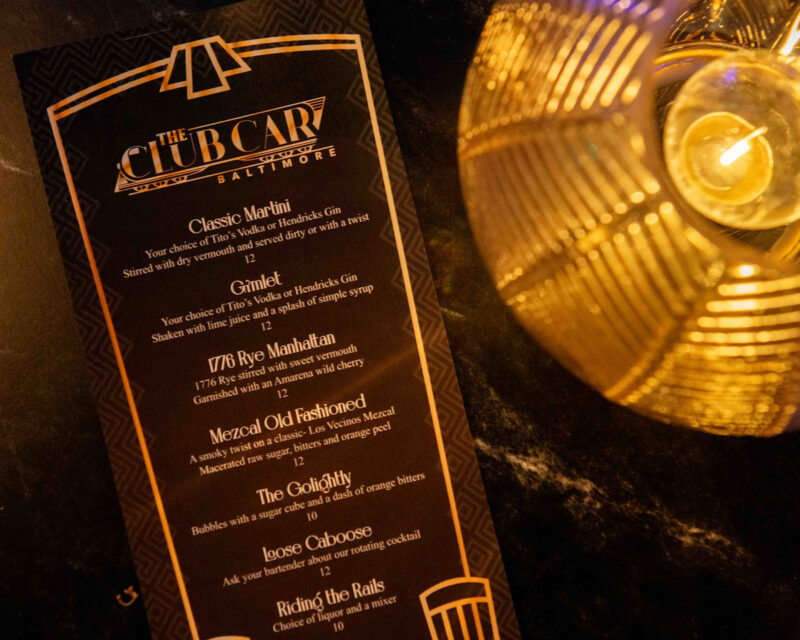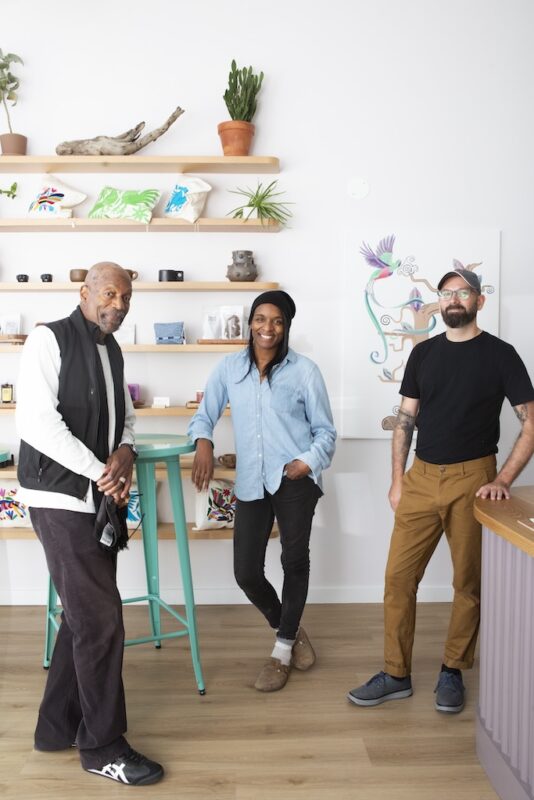Jean-Luc Gallic on the Baltimore Free Farm
Tucked away on Ash Street only a few blocks away from the Woodberry light rail stop, you would never guess that the Baltimore Free Farm exists. The working farm and egalitarian commune consists of three homes, a warehouse, a community run garden, a chicken coop, and a permaculture garden. The structures in the backyard are covered in images of mutant vegetable creatures, painted by an activist puppet group Poncili Creacion, during a visit to Free Farm, as commentary on genetically modified foods (GMOs). While the space and people within it are relaxed and inviting, the collective that occupies this space works earnestly to give Baltimore city residents what they need or, more importantly, what they deserve.
While large swaths of Baltimore neighborhoods have suffered from few access points to decent food, recent efforts to create access to food and food growing resources in Baltimore’s ‘food deserts’ have been sprouting up all over the city. While The Ash Street Community Garden is not located within a food desert, the Baltimore Free Farm stands as an exemplary sustainable commune using outreach programs and activism to help these efforts.
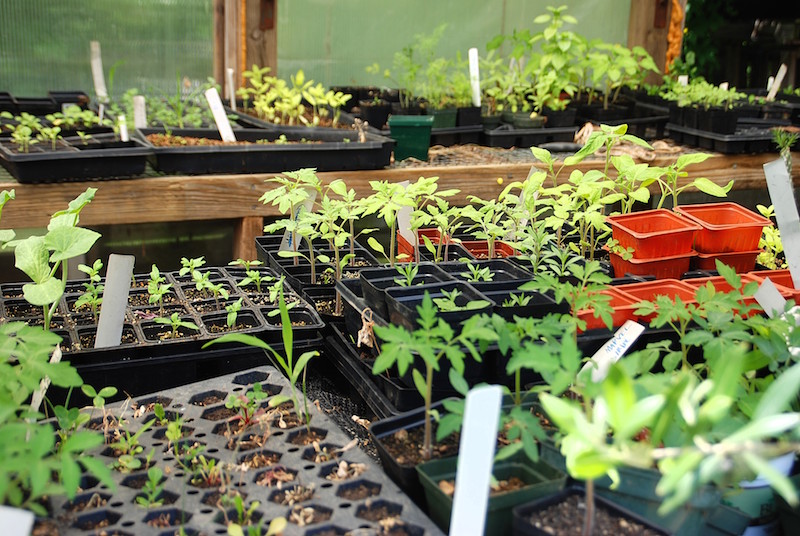
Started in 2010, a few friends reclaimed an empty lot overrun with weeds in association with the Adopt-A-Lot program, giving the hillside new life as a space to grow vegetables. This was the first of many projects for the Baltimore Free Farm as they worked to purchase the homes they had been living in and expanded their farming practices into some of the adjoining unused lots on Baldwin and Everhart Streets for sustaining their community, selling at Waverley Market through the Baltimore Farm Alliance, and dispensing surplus during their Food Rescue Days.
Food Rescue Day is a weekly event that The Free Farm has made central to their mission: a massive effort at recycling food that major grocery stores deem unfit for customers, but are completely edible. Every Wednesday the collective members travel out as far as 30 miles to collect goods and produce from stores to be distributed from their warehouse location for free to members of the community.
As they state on their website, “This is a direct action against the endemic food waste crisis that faces our society, which pushes 40% of food produced into landfills to rot with the plastics and other non-compostable goods while millions around the world starve. By simply giving perfectly edible food to people who will eat it, Food Rescue Day is the physical manifestation of a conversation about food waste on a local level.”
Currently, the Free Farm owns all three joint homes on Ash Street and rents a nearby warehouse to host a multitude of creative and inclusive projects such as art classes, bike repair workshops, yoga, permaculture potlucks, and a wide range of educational discussion sessions, some covering topics of sustainable living in the garden through the observation and design process. Beyond these public programs, members of Free Farm work in an on-site metal shop and screen printing studio, creating designs for events they host or for trade with other communities.
Recently, during the protests in support of Freddie Gray in Baltimore, Free Farm supported the voice of change with posters and prepared food for those protesting and others released from jail after being arrested at protests. Out of the warehouse kitchen, the Baltimore Free Farm hosts Food Not Bombs, a world-wide food and activism organization, gathering local volunteers to make organic meals in an effort to fight injustice, dominance, and privilege by sharing one of Baltimore’s scarce resources, food.
For the members of The Baltimore Free Farm, living in the Ash Street space is a meaningful way to build and participate in a community working on common goals. These activists, farmers, builders, and artists have much to offer and teach; they focus their energy working towards a healthy and beautiful Baltimore in a variety of ways.
Author Jean-Luc Gallic was born and raised in Lancaster, PA. He graduated with a BFA from the Maryland Institute College of Art in 2015. He enjoys short walks on the beach, long bike rides along the woods, decaf coffee, gardening, and cooking for others.
For inquiries into joining, volunteering, visiting, or donating to the Baltimore Free Farm, check out their website: http://www.baltimorefreefarm.
Or facebook page for events and updates: https://www.facebook.com/baltimorefreefarm
Mural by puppet group Poncili Creacion: http://cargocollective.com/poncilicreacion
* All Photos by Jean-Luc Gallic
